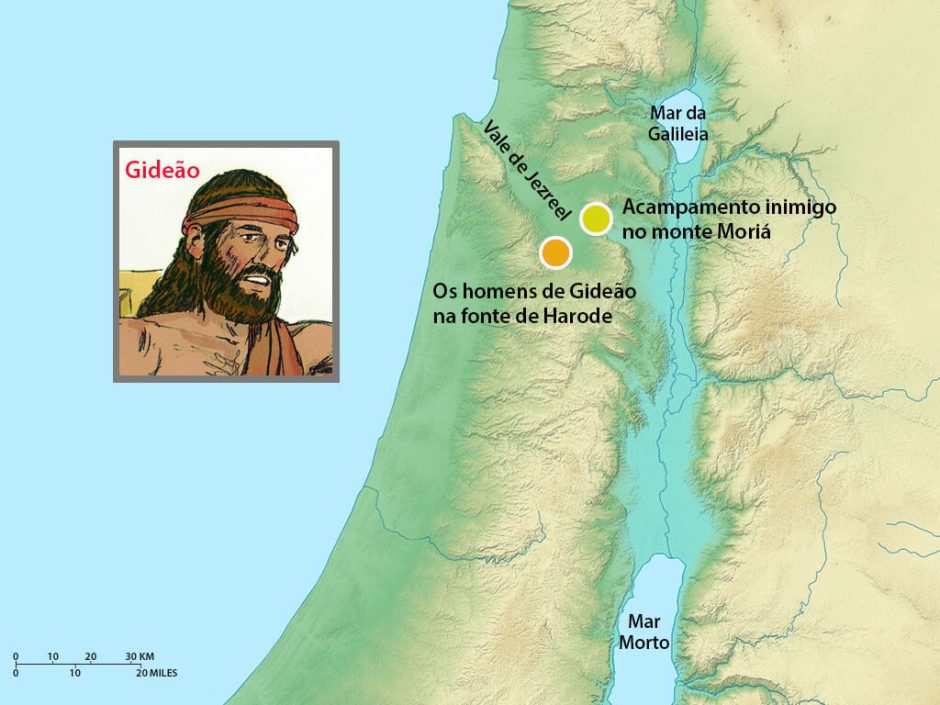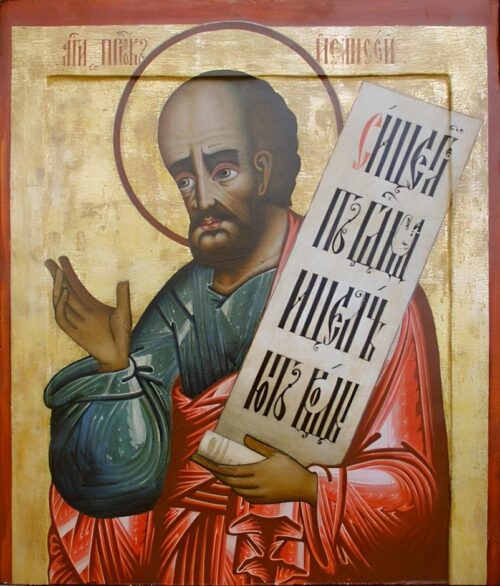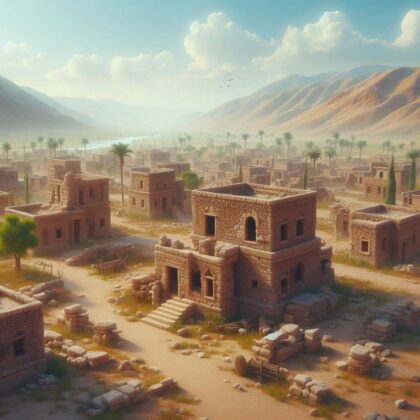Abel-Meolah was a city of ancient Israel, remembered for having been the home of the prophet Elisha and place where the Midianites fled after being defeated by the Judge Gideon and his soldiers.
Being considered a city of lesser importance and relevance, it does not have many reports throughout the biblical text and in historical materials. Due to the fatal of information, it is not possible to clearly say who founded it and its culture.
History of Abel-Meolah
The origin and foundation of Abel-Meolah is unknown, but some scholars suggest that it may have been one of the cities that the Israelites conquered from the Canaanites, inhabitants of Canaan before the arrival of the Israelites, and distributed among the tribes after the conquest of the land. promised.
According to this suggestion, the city was founded by the Canaanites who established themselves throughout the Jezreel Valley, years before the arrival of Israel in Canaan. Being a smaller city, it probably served as a home for or few farmers who worked in the region. without playing a major commercial, religious or political role, such as hazor or betel.
With the Israeli conquest of the region, the city was shared among the tribes, being attributed to some of the northern tribes, probably Manasseh or Issachar.
Judge Gideon’s Battles
After 7 years of oppression, in which Israel suffered from looting and attacks by the Midianites, God raised Gideon, son of johs, as a judge of his people. According to the Lord’s guidance, Gideon gathered an army of only 300 soldiers, with whom he faced the army of Midian in the vicinity of Mount Moré.
During the night, Gideon divided his soldiers into three groups, giving them torches, pitchers and trumpets. Around midnight they invaded the enemy camp, broke the pitchers and blew the trumpets. At this time there was great confusion between the enemies, who frightened began to kill each other.

According to the passage of Judges 7:22, the Midianites, after suffering this great defeat for Gideon and his soldiers, part of the Midianite soldiers fled to the northern region of Israel, towards the city of Abel-Meolah, passing through will reset and bete-sita.
These enemy soldiers were captured by the tribe of Ephraim, who defeated them and murdered their leaders, zeeb and oreb.
The rest of the Midianite army gathered in the city of carcor. but they were ambushed by the Israeli army led by Gideon. close to the cities of noba and jogbeá, the Midianites were defeated and their kings, zeba and zalmuna, were killed.
With this Israel put an end to Midianite oppression and Gideon was recognized as a great deliverer from his people. bringing a peace that lasted approximately 40 years.
Birthplace of the prophet Elisha
Abel-Meolah is the city where the prophet Elisha was born and lived, a prophet used by God during the period of the monarchy of Israel, after the division of the kingdoms.
Elisha was the son of Safate, a rich farmer of the city, and was called by God to be the successor of the prophet Elijah. Elisha left his home in the city to follow Elijah and learn from him.
The biblical text tells us that the prophet Elijah, after going through a moment of spiritual fatigue, is sent by God to Abel-Meolah to anoint Elisha as his successor. Arriving in the city Elijah saw Eliseu plowing in the lands of his father, safate.
Coming close to Elisha, he threw his cloak on him, as a sign that God was calling him as a prophet. After being called, Eliseu ran to his house to say goodbye to his parents.

Elisha walked with Elijah until the moment when God snatched Elijah in a chariot of fire to heaven. After this moment Elisha became a prophet and performed twice as many miracles as Elijah performed them.
Elisha counseled and judged several kings of Israel, the northern kingdom, being remembered as a wise man, who performed various miracles in the name of God.
City decline
After Elisha’s life span, there are no mentions of the city of Abel-Meolah in the Bible.
It is possible that the city has been abandoned over the years, with its residents migrating to the larger city or being taken captive during the invasions/dominations of Assyria and Babylon.

Geography and Location of Abel-Meolah
Although it is not possible to clearly say its location, it is likely that Abel-Meolah was a small town in the Jezreel Valley, close to Jordan River.
As a result, the city benefited from fertile ground, suitable for agriculture. As mentioned in the accounts of the prophet Elisha, the region was used widely for agricultural activities, the main crops being the tribe, corn and cotton.
Even the Jezreel Valley region is used for agriculture, serving for food and subsistence for current Israel.
Some translate this name as “sand dune”, however it does not make sense with the description of the city in the Bible.[1]

Meaning and etymology of the name “Abel-Meolah”
The name Abel-Meolah has its origin in Hebrew (אַבֵּל מְעוֹלָה) is composed of two words: Abel (אַבֵּל) and Meolah (מְעוֹלָה).
Abel is a Hebrew word meaning ‘meadow’, ‘field’ or ‘plain’. Meolah is a Hebrew word meaning ‘to rise’ or ‘to rise’.
Thus the most likely translation for this name would be ‘high meadow’ or ‘high field’. indicating that the city was located in a fertile place, with forests and forests.
Some locations translate the city’s name as ‘sand dune’. However, this translation does not match the geography of the place based on biblical accounts.[1]
Learn more
[Podcast] Who were the judges? btcast.
[Vídeo] Who was Gideon? The story of Gideon, the most important judge of Israel. channel illustrating.
[Vídeo] Judges. Bible Project – Portuguese.
[Vídeo] The Valley of Jezreel – Part 1 #6. Moreshet Israel – Legacy of Israel.
Sources
[1]What is the meaning of Abel-Meolah (Abel-Mula) in the Bible? Annotated Bible.
- Aroer – 10 de October de 2025
- Aijalom of Zebulun – 10 de October de 2025
- Aijalom of Dan – 10 de October de 2025